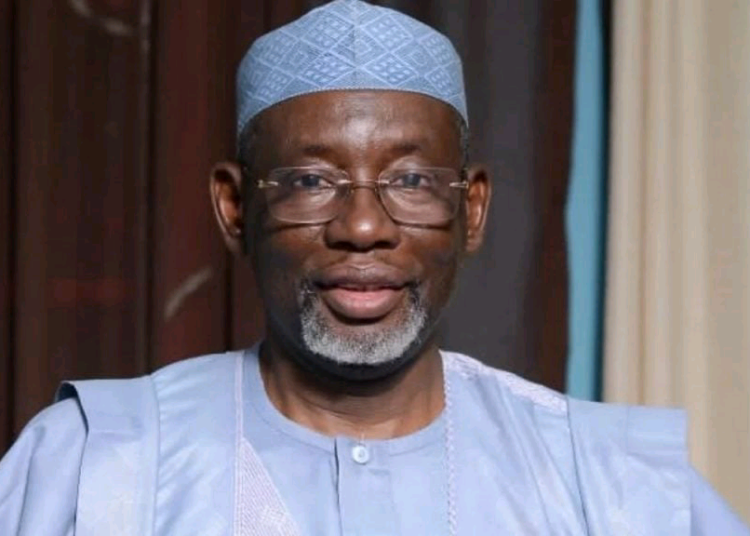Jigawa State Governor, Malam Umar Namadi, has been awarded the 2024/2025 Nigerian Muslim Personality of the Year Award.
The accolade was conferred upon Governor Namadi by Muslim News, Nigeria’s most authoritative Islamic newspaper.
Namadi’s selection as the Nigerian Muslim Personality of the Year was formally announced via a press statement on Friday, 14 November, by the newspaper’s publisher, who is also the organiser of the #MNAwards, Alhaji Rasheed Abubakar.
Now in its fifth edition, the #MNAwards highlights Muslim achievers across various sectors of society, including politics and good governance, health, education, law, and advocacy, among others.
Past recipients of this category include His Eminence Alhaji Muhammad Sa’ad Abubakar III, Sultan of Sokoto; Prof. Babagana Umara Zulum, Executive Governor of Borno State; Prof. Isa Ali Ibrahim Pantami, former Minister of Communications and Digital Economy; and the Vanguards of Hijab—a group of 12 distinguished Muslim personalities who played key roles in securing the landmark Hijab victory at the Supreme Court of Nigeria.
Alhaji Abubakar congratulated Governor Namadi on being named the 2024/2025 Nigerian Muslim Personality of the Year, while also urging him to view the recognition as a charge to do more for his people, state, and Islam.
The publisher noted that the decision to honour Governor Namadi, who has been steering the affairs of Jigawa State since 2023, followed a thorough selection process that reviewed several prominent Muslim personalities across Nigeria.
“Over the past few months, our team has worked diligently on various categories of the #MNAwards2024. For the Nigerian Muslim Personality of the Year, many notable individuals were considered and shortlisted.
“However, only one winner could emerge. Ultimately, the judges unanimously settled on His Excellency, Umar Namadi, the Governor of Jigawa State, based on his unassuming character and remarkable contributions to governance and the Islamic faith,” he stated.
The first-time Governor has led Jigawa State with commendable wisdom, tact, and strategic direction over the past two years. His administration is guided by a comprehensive 12-point development agenda known as the Greater Jigawa Initiative, which outlines his vision for transforming the state across key sectors.
His priority areas include: agriculture, education, healthcare, technology and ICT, youth empowerment, infrastructure, security, governance reforms, institutional autonomy, environment, investment and revenue, and social protection.
Known for his pro-masses policies and interventions, Governor Namadi has significantly invested in human capital through developmental projects, as well as upgrades to schools and health facilities across the state, widening citizens’ access to quality education and healthcare.
Despite the ongoing insecurity in Northwest Nigeria, Jigawa State remains peaceful and has recorded low security breaches. This is attributed to the active support Governor Namadi extends to the security agencies.
In an effort to improve the quality of life for his people, Gov Namadi initiated a massive housing project, with units distributed across various local government areas of the state.
“The 1,500 units of housing project is valued at 6 billion naira. Approximately 600 units were earmarked for Dutse, the state capital. Other LGAs received between 200, 150, and 100 units. This addresses a critical aspect of human dignity: accommodation.”
The Governor is also credited with establishing the Jigawa State Youth Employment and Empowerment Agency, which has provided jobs for hundreds of thousands of youths, particularly women, and supported them with funds that enable them to become productive members of society.
This brilliant initiative has expanded existing businesses and led to the establishment of new ones by young people, thereby boosting the economy and facilitating job opportunities in the state.
“In agriculture, the Governor has procured tractors and other farming implements to bolster agribusiness in the state, making farming easier for nearly 90 percent of the population who depend on it,” he stated.





